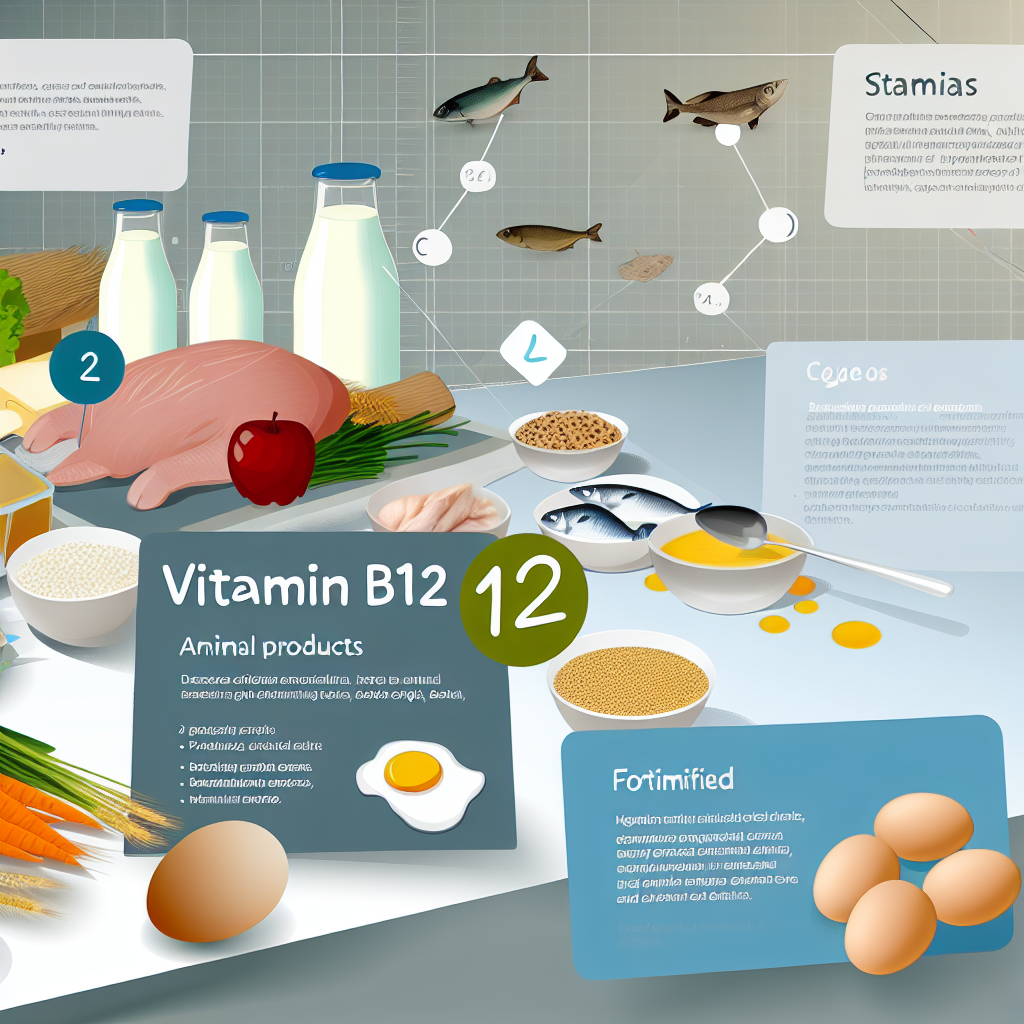Vitamin B12, also known as cobalamin, helps your nerve cells function normally and is essential for red blood cell formation and DNA synthesis. It’s found naturally in animal products, including meat and dairy, as well as fortified foods like certain breakfast cereals and nutritional yeast.
People who consume vegetarian or vegan diets and take medications such as metformin may be at risk for vitamin B12 deficiency.
Dietary Sources
Vitamin B12 is found primarily in animal foods like fish, meat, milk and eggs. It’s also in fortified foods like breakfast cereal, nutritional yeast and plant milk (like soy, almond or oat). You can find information about how much vitamin B12 is in food by checking the nutrient facts label. If you’re concerned about not getting enough B12, talk to your doctor or pharmacist about taking a dietary supplement. Vitamin B12 supplements are available in many multivitamins and also as standalone products.
Vitamin B-12 is a water-soluble nutrient that is naturally in some foods and added to others. It’s important for the body’s nerve cells and blood cells, and it helps make DNA. It also prevents a type of anemia called megaloblastic anemia.
The best sources of vitamin B12 are meat, poultry, fish, dairy and eggs. Vegans and those with food allergies or intolerances can get it from fortified foods like bread, breakfast cereal and nutritional yeast. People who are deficient in vitamin B12 can experience symptoms like fatigue and depression, according to a 2020 research review. Symptoms can be treated with injections or oral medication. Several studies suggest vitamin B12 can lower levels of homocysteine, an amino acid linked to heart disease. However, more research is needed to confirm these findings.
Health Insights
Vitamin B12, also known as cobalamin, has many roles in the body. It’s necessary for nerve cell function, DNA synthesis, and red blood cell formation. It’s available naturally in foods, added to some foods, and as an oral supplement or injection. The recommended dietary allowance (RDA) is 2.4 micrograms per day for adults, and it’s higher during pregnancy and breastfeeding.
The food sources of vitamin B12 are primarily meat, fish, and eggs. People who follow vegan diets or vegetarian diets that exclude eggs and dairy products may need a B12 supplement. Additionally, vitamin B12 levels tend to dip during pregnancy, so women who are expecting should be sure to have a B12-fortified prenatal vitamin.
Health professionals can provide vitamin B12 injections, which are typically cyanocobalamin or hydroxocobalamin forms of the vitamin. They’re used for people with severe vitamin B12 deficiency, including pernicious anemia and other conditions that affect digestion or absorption of this nutrient. These injections are administered in the buttocks or upper arm, and they can be repeated every other day or as often as once a week. The injections can also be prescribed for people who experience symptoms like a tingling sensation in the tongue and lips, called aphthous stomatitis. For more information, talk to your doctor.
Expert Guide
The vitamin B12 (cobalamin) is the most chemically complex of all vitamins and contains a metal ion, cobalt. It is found naturally in animal foods, including meats, fish, shellfish, and dairy products, as well as added to fortified foods like cereal and nondairy milk. The body can also synthesize it from other microorganisms, such as the bacterium Propionibacterium bacteria (also known as the "b" strain of the common intestinal bacteria Lactobacillus reuteri).
Vitamin B12 is necessary for DNA synthesis, red blood cell formation, and nerve function. It also helps to reduce levels of the amino acid homocysteine, which is elevated in many people with chronic health conditions like heart disease and stroke.
The National Academy of Medicine recommends that adults over the age of 50 consume dietary sources or supplemental vitamin B12 to prevent deficiency. Older adults, those who follow a vegan diet, and those taking medications that affect stomach acid production should talk to their doctor about additional options for maintaining optimal levels of vitamin B12. They may consider oral supplements or injections. (2)
